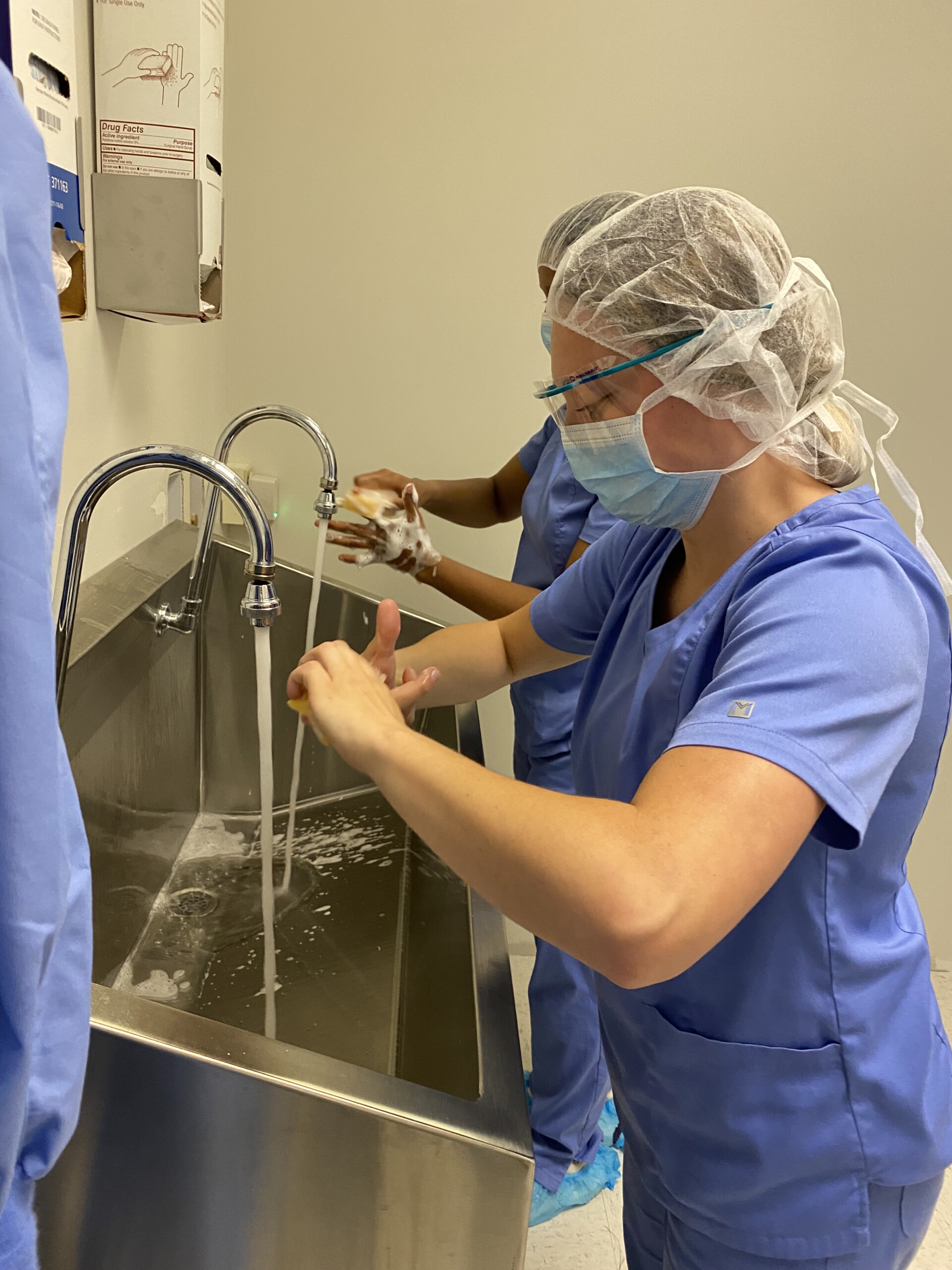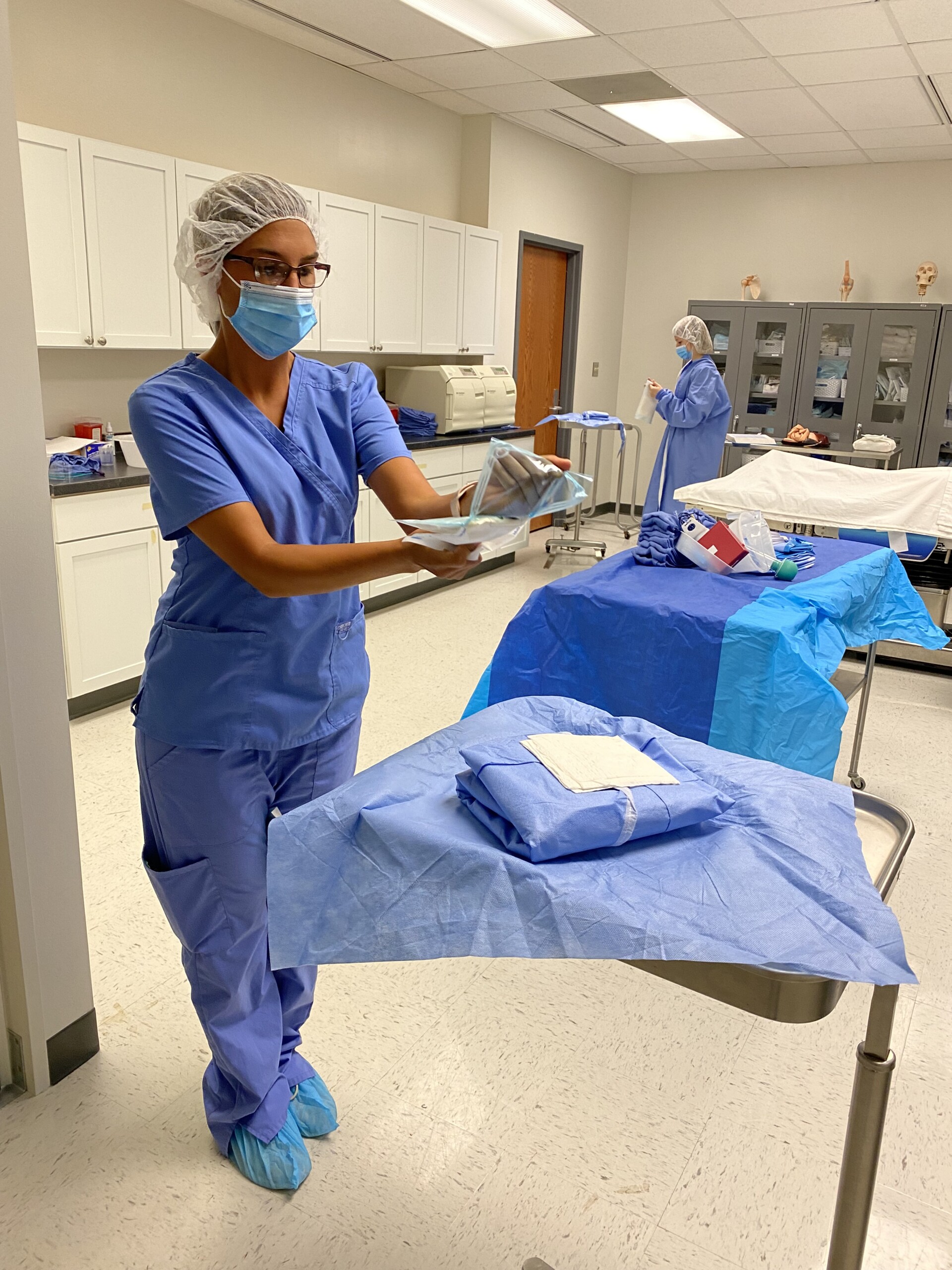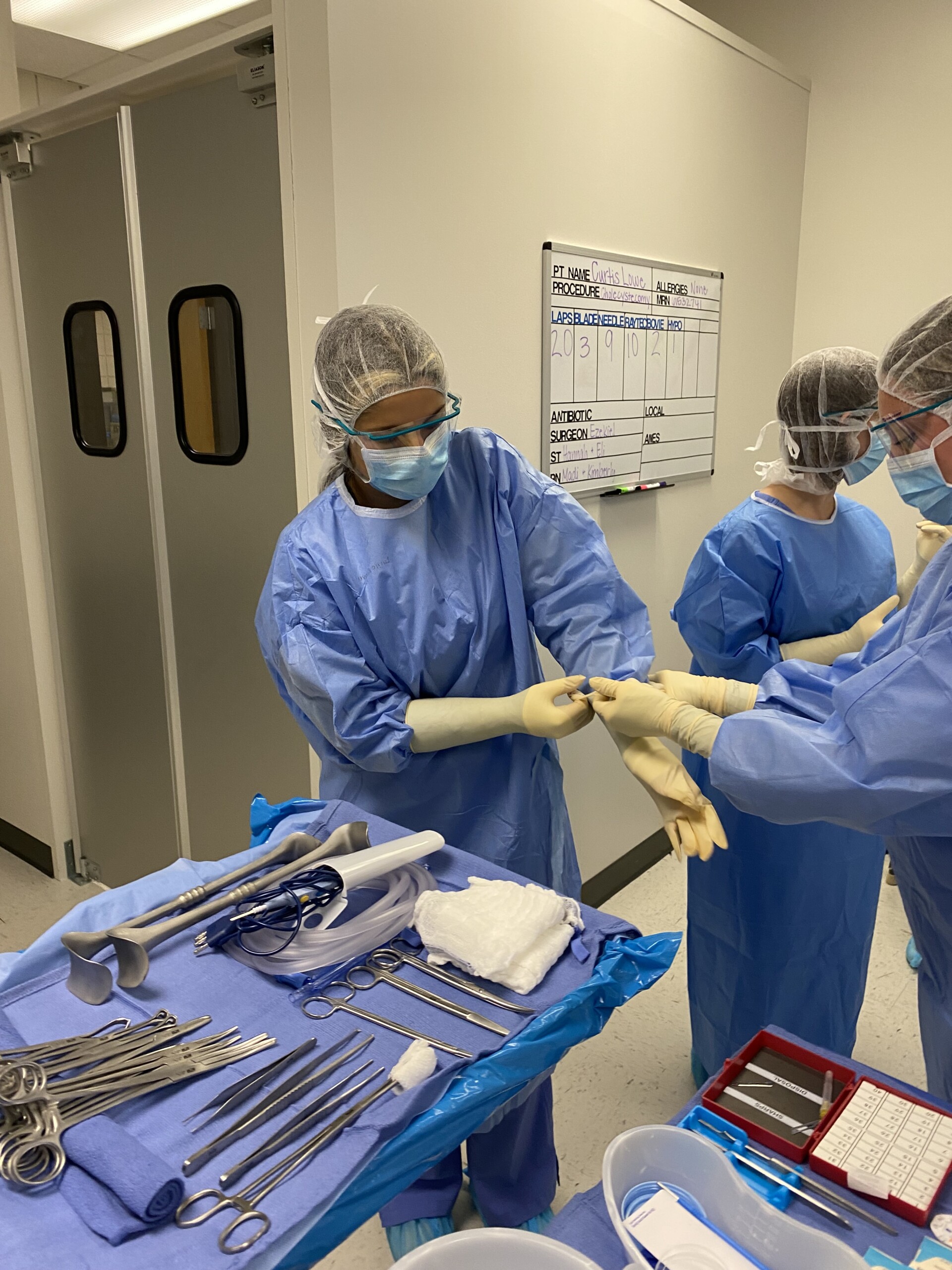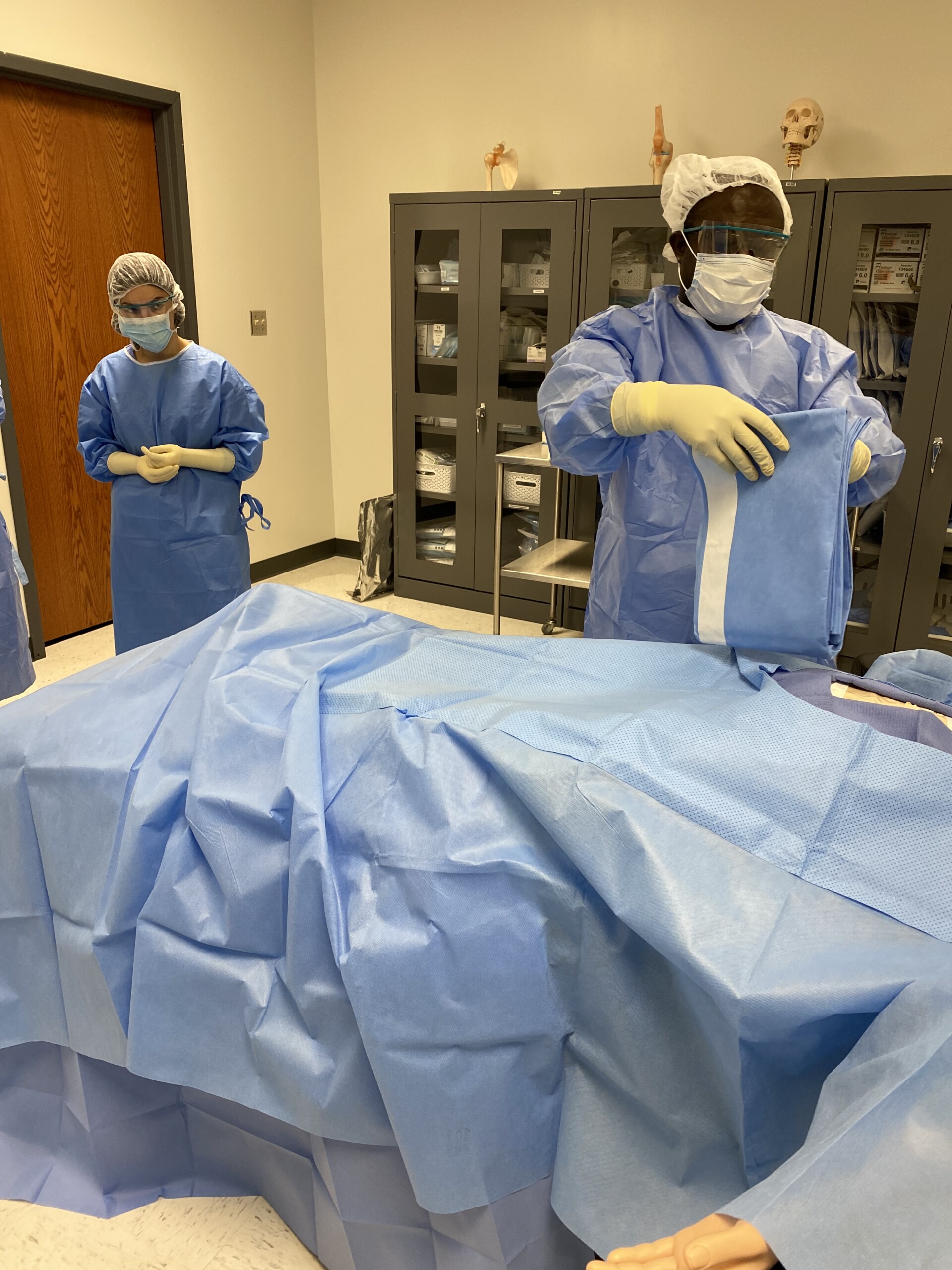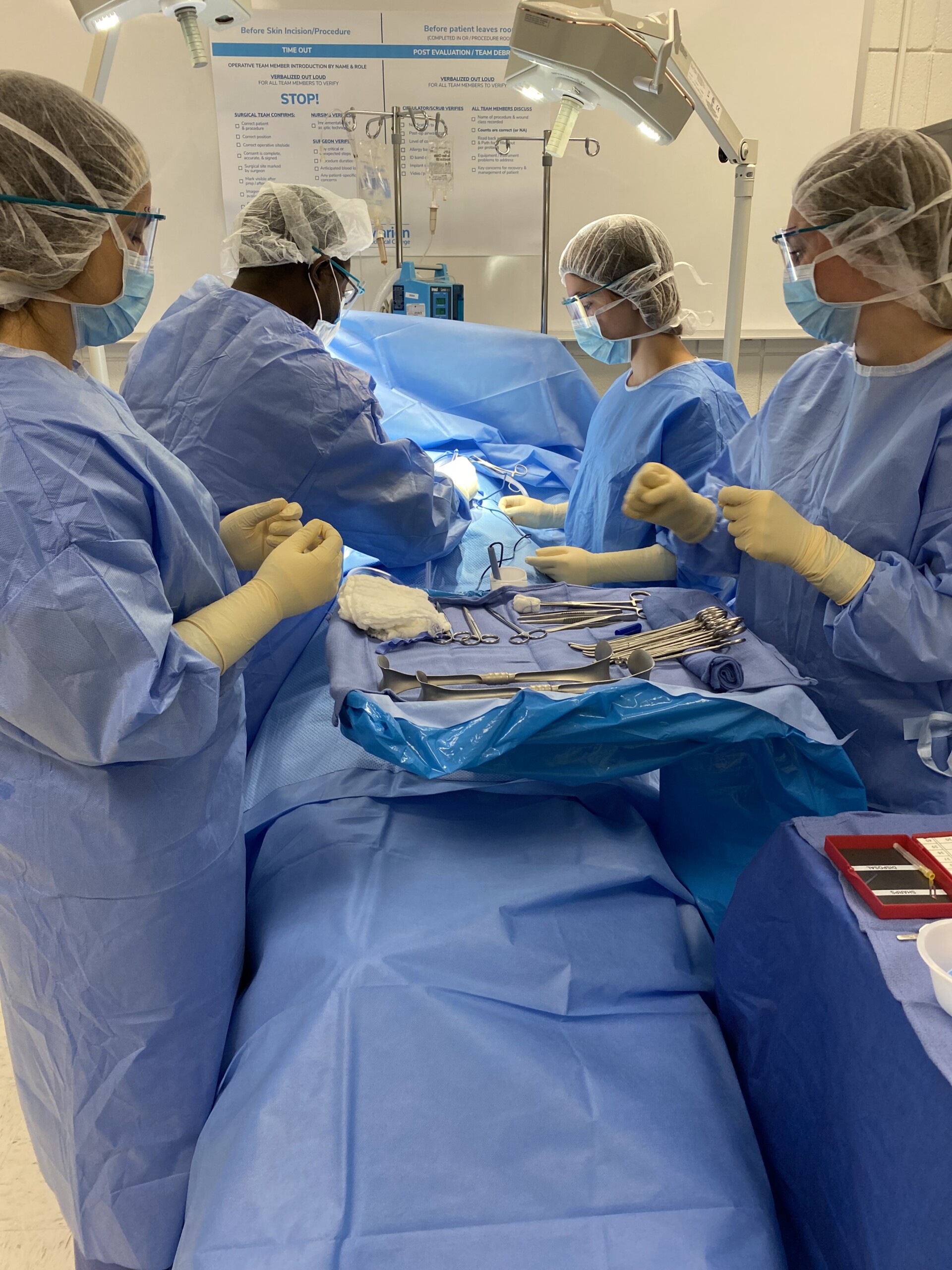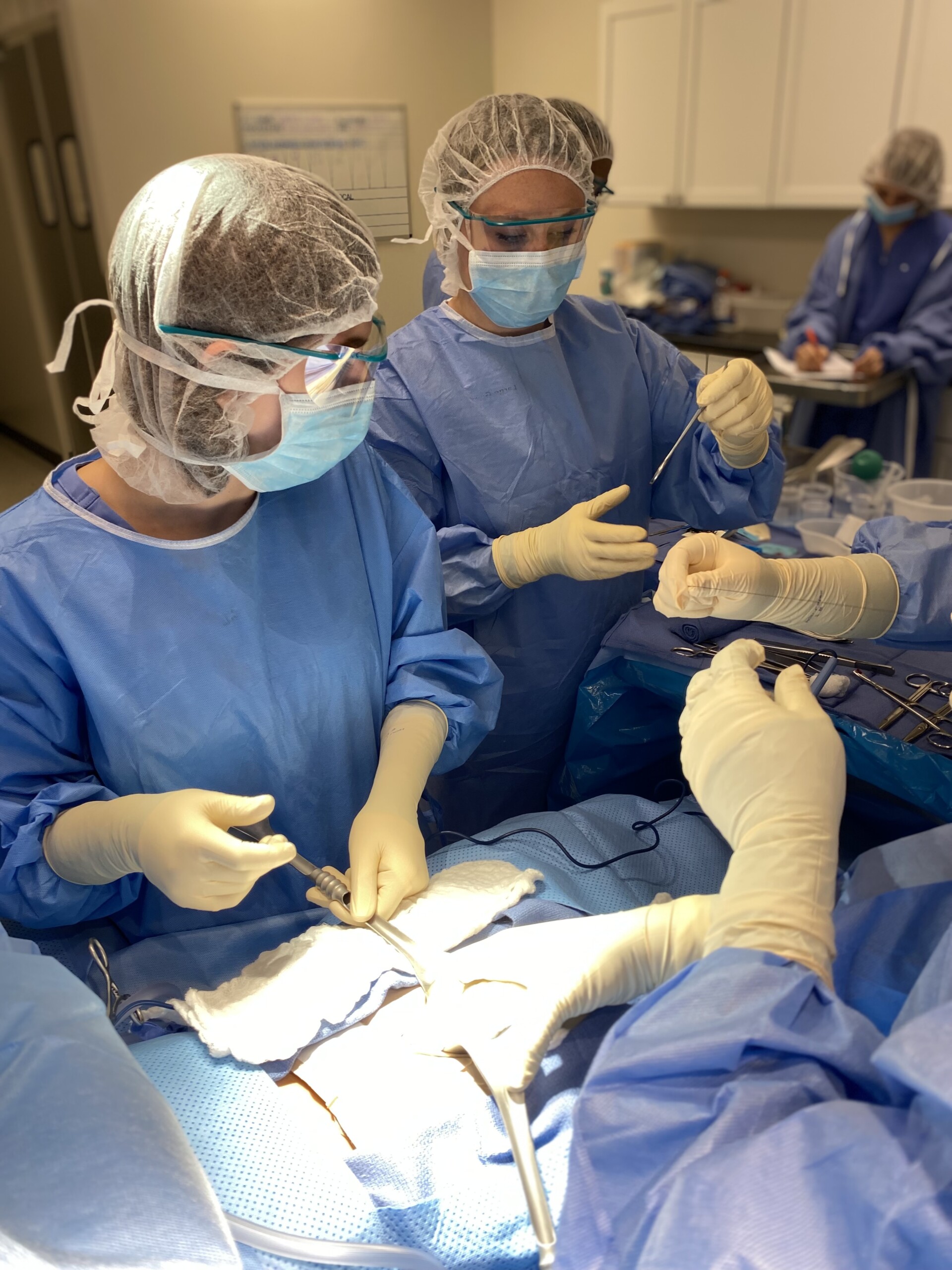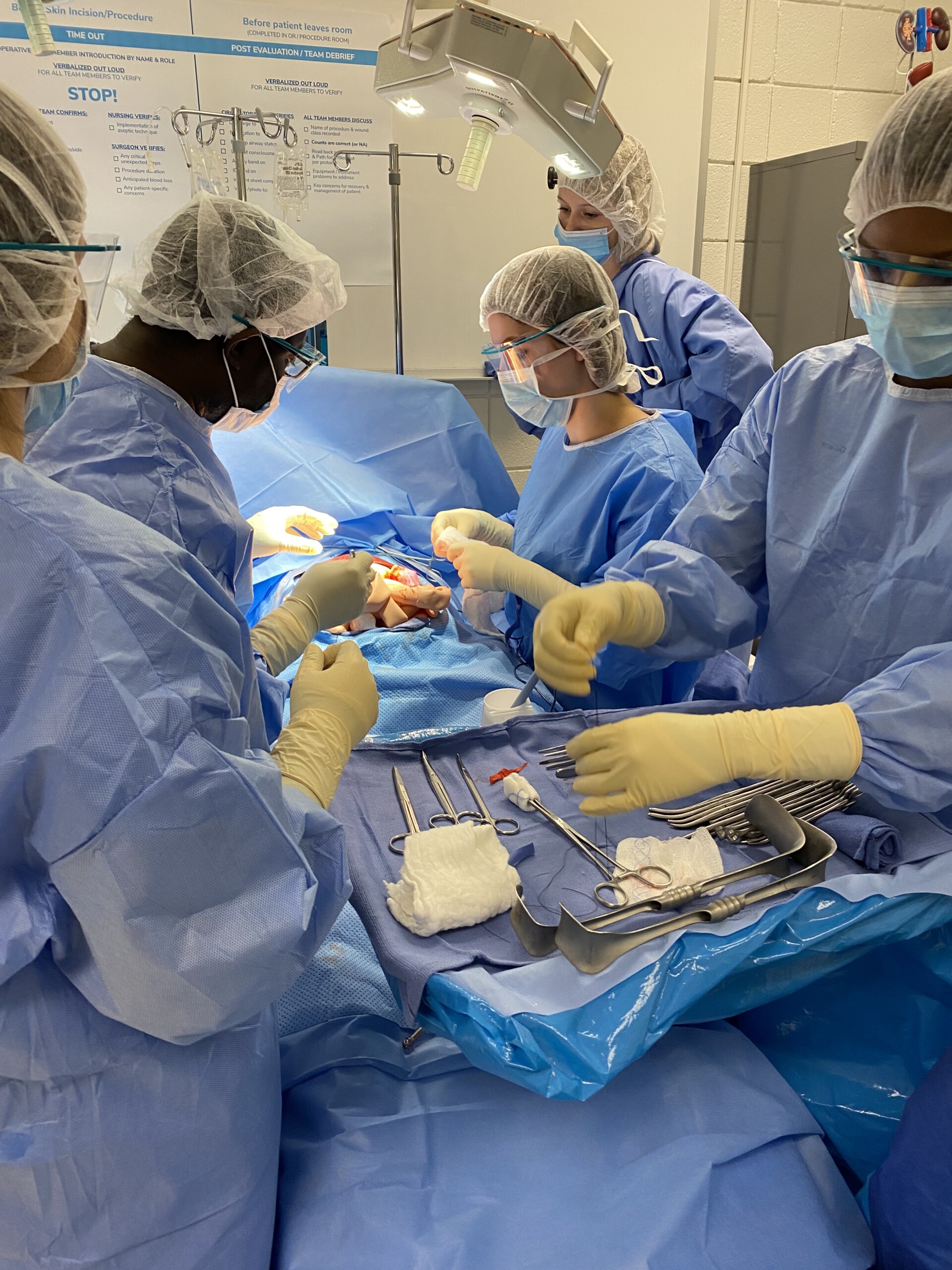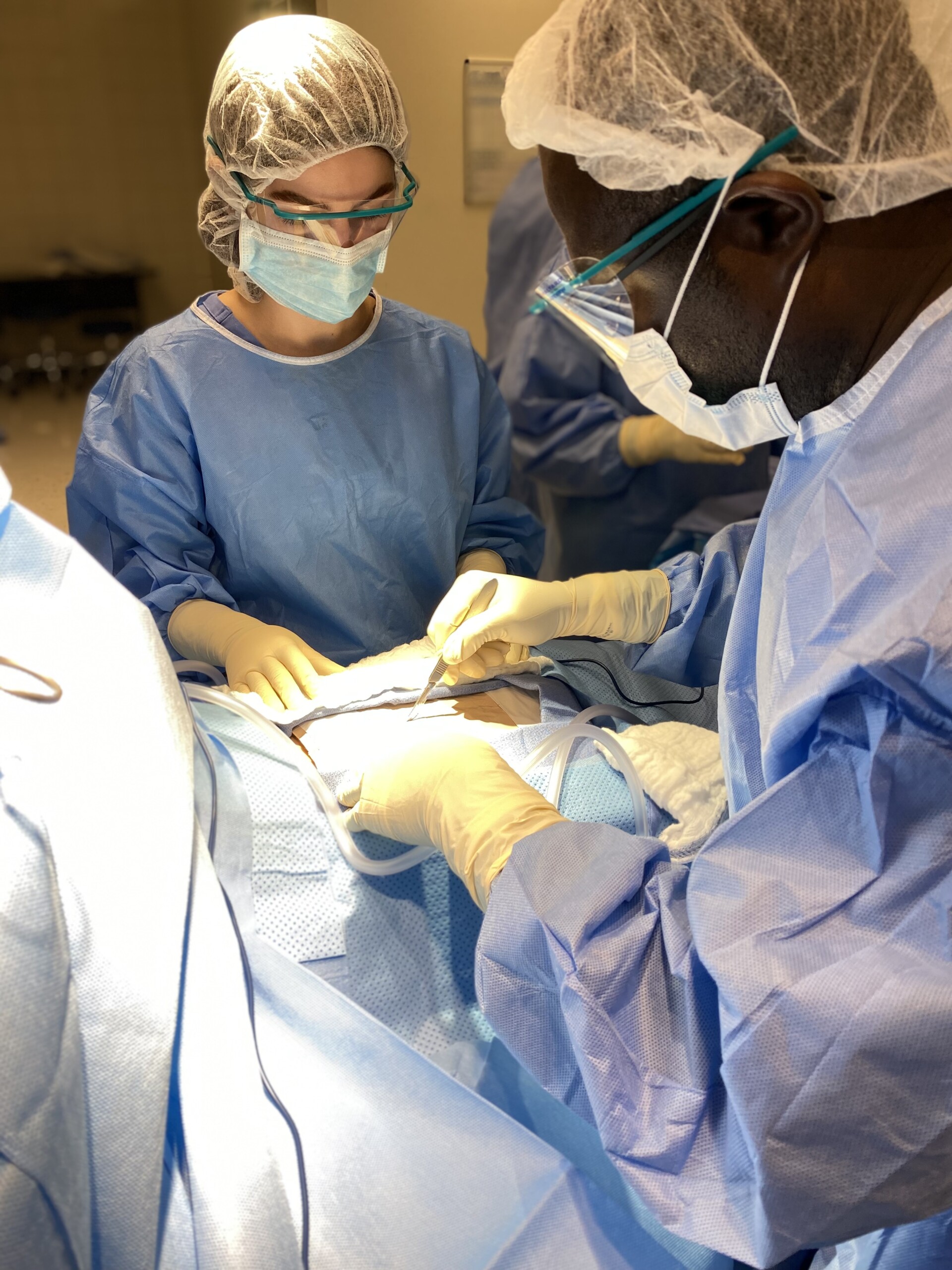By Chris Ahearn, AAS, CST
Achieving high quality surgical care is a priority for any healthcare organization. As surgical technology educators, we are tasked with providing our communities of interest with competent, entry-level graduates. The complex nature of modern surgical interventions has created opportunities for educators to expand and improve clinical instruction while preparing students to enter the workforce. To benefit our students, we understand the importance of achieving and maintaining proficient clinical skills. In this article, we will share one program’s approach to keeping students’ skills sharp from the lab to the OR.
In “Learning: The Talents of the Brain, the Challenge of Machines,” author Stanislas Dehaene explores the brain’s ability to learn and maintain information. His “Four Pillars of Learning” are identified as attention, active engagement, error and surprise signals (feedback), and consolidation. It is this last tenet, consolidation, that is most crucial to the surgical technology student. The ability to store information and skills over the long term is key to developing the strong clinical skills necessary for providing high quality patient care in today’s fast-paced operating room environment. According to Dehaene, “Our brains have the ability to automate the tasks we are required to perform. To consolidate our knowledge, the brain needs repetition which is facilitated by association and memorization activities that help embed information in the memory for the long term.”
At Marion Technical College in Marion, Ohio, Surgical Technology Program Director Jerad Claytor, MSHE, CST, and his staff have come up with a fun and unique way of helping students build their knowledge base and ensure that the skills learned in the lab will translate to success in the operating room during students’ clinical rotations. Their “Scrub Skills Bootcamp” is a six-week program within a program. It is designed to reinforce clinical competence through repetition, providing the students with confidence while achieving the ability to retain and consolidate their learned clinical skills.
Here is our interview with PD Claytor. His answers provide valuable insight and a roadmap to successful transition from lab to the OR.
Can you tell us the origins of the scrub skills bootcamp?
Our bootcamp started after a few students shared that they weren’t confident in their skill set prior to going into clinicals. Some students grasp the skills faster than others and it is our goal to make sure that each of our students feels confident, so we created a bootcamp to solidify their skills. Our program is a five-semester program, and the students’ second semester is where they learn all the hands-on skills needed such as instrumentation, passing, loading needles, draping, etc. To complete the skills course, the students must pass a final lab check off which requires them to set up and perform a mock procedure (these procedures are basic – typically an abdominal mass removal). Their third semester (summer semester) the students start their clinicals.
How long is the bootcamp? Can you give us an idea of the timing of the sessions, i.e., how far in advance of their clinical rotations does the bootcamp begin?
Bootcamp lasts about six weeks and occurs the six weeks prior to the start of their clinical rotation. We delayed their clinical start by six weeks which allowed time for the bootcamp.
Students attend bootcamp two days a week from 8 a.m. to 3 p.m. for six weeks (12 sessions in total). Each session or day is then broken down into two or three skills that will be focused on during that time until all the skills are covered. Example: Monday might include open gloving, gowning and gloving, and scrubbing. The students would then have time to work on the specifics of each skill, followed by games that will test their speed and accuracy performing each skill. At the end of the bootcamp, the students will go through a final Olympics or competition type game (this year we have several students who are fans of the TV show Survivor, so our competition will be based on the show), with the winners receiving homework passes, pizza parties, or some other reward.
Students focus on scrubbing, opening supplies, and gloving.
What do you feel is the biggest advantage of the bootcamp for the students?
The biggest advantage in my opinion is the students are learning and refining their skills without realizing it, because they are having so much fun and trying to out-compete their classmates.
The trauma case gears up and each student fills their role.
What kind of feedback has the program received from students about the bootcamp? Has the bootcamp helped them with their skills for their clinical rotations?
Students always comment on how fun the bootcamp is, even if they find it stressful at times. They have shared that once they are in their clinicals they realize how those little tasks and competitions they did during bootcamp paid off. One example a former student gave was how our speed gowning and gloving challenge helped when she had to quickly prepare for a trauma case rushed into her room.
Well-trained and confident in their skills after surgical skills bootcamp, MTC students fill the roles of surgeon, circulator, surgical technologist, and anesthesiologist to help their “patient” have a successful surgical outcome.
As educators, we are continually exploring new and fun ways to impart confidence as we ready our students for the operating room — where sometimes there isn’t time to think, only to act. Kudos to Jerad and his staff at Marion Tech, and all the other educators around the country who are implementing new ways to assure our surgical technology graduates are prepared to deliver high quality surgical care to our patients.

Chris Ahearn, AAS, CST, served in the United States Air Force from 1978-1982 where he received his CST training. Ahearn worked for more than 30 years at the Level I Trauma Center -Stony Brook University Hospital on Long Island as a CST, clinical educator, ST program instructor, and finally, as program director at Suffolk County Community College, which received its initial accreditation in 2021. Ahearn serves as chair of the ARC/STSA’s Editorial Advisory Board where he is an active contributor.

